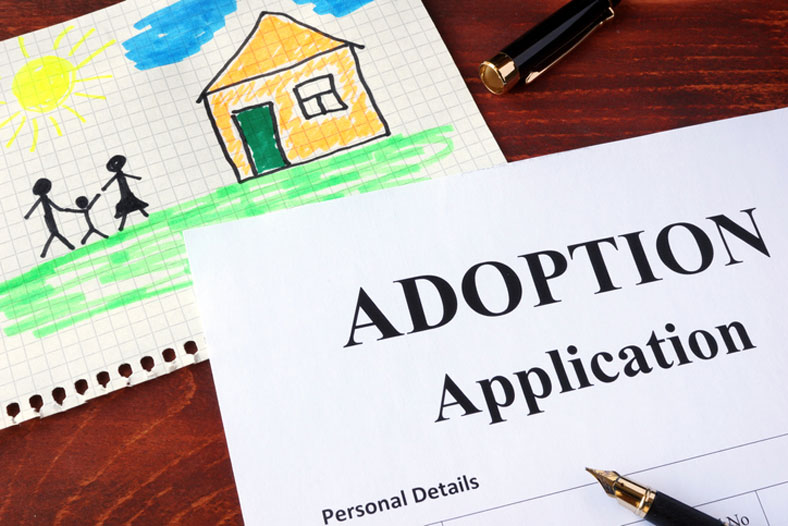Written by Sam Medley

Every year, California’s child welfare agencies receive almost 500,000 reports of abuse and neglect. About 60,000 children in the state are in foster care.
But California doesn’t just need child welfare social workers to handle these crises. The state needs compassionate people who can help children process trauma, get them in better homes, and advocate for struggling parents who, despite their best efforts, just can’t seem to keep their heads above water.
If you’re interested in how you can answer the call, here’s what you need to know about what a child welfare worker does, where they work in California, and what your salary potential might be.
What Does a Child Welfare Social Worker Do?
Child welfare workers ensure that all of a child’s emotional, physical, social, and developmental needs are met. In many cases, the children they advocate for are already in the child welfare system or living in dangerous situations.
However, child welfare social workers don’t just intervene when children need to be removed from their homes. Their main objective is to strengthen and empower families to overcome whatever issues they’re dealing with.
To accomplish that task, child welfare professionals:
- Visit homes to assess children and families.
- Act as case managers by developing solutions, implementing them, and performing follow-up assessments.
- Provide child and family counseling, parent education, and other services as needed.
- Connect families to resources like affordable child care, financial assistance, addiction treatment, and housing.
- Investigate reports of abuse and neglect.
- Act as witnesses in legal proceedings and make recommendations to the court.
- Respond to immediate crises and remove children from dangerous situations.
- Work with various agencies to secure short- and long-term home placements.
However, many professionals don’t carry out all of these duties themselves. They must also collaborate with families, educators, mental health professionals, and anyone else whose talents promote child and family wellbeing.
Other Child Welfare Social Work Job Opportunities and Titles
Nurturing even a single child is a team effort. The field of child welfare is full of different career paths and opportunities for anyone committed to this lofty goal.
Some roles you might take on as a child welfare specialist include:
- Foster care social worker
- Case manager
- Child and family therapist or counselor
- Licensed Clinical Social Worker (LCSW)
- Parent or family educator
- Continuing service social
- Child Protective Services (CPS) social worker or supervisor
- Child services coordinator
- Child welfare advocate
- Child abuse prevention or treatment specialist
- Marriage and family therapist
Some of these roles may require additional schooling or certification. However, many are open to experienced child welfare social workers who have a Master’s in Social Work (MSW) and/or a license to practice clinical social work in California. In fact, many employers heavily favor applicants with one or both of these certifications.
Where Do Child Welfare Social Workers Work?
California is home to over 49,000 child, family, and school social workers — more than any other state in the nation. But even though this massive professional community is unified in its mission to protect children, they work for an impressively diverse range of agencies, each with its own purpose and role.
Government Agencies
City, county, and state agencies are some of the biggest employers of child welfare and family social workers. They also typically need child welfare specialists of all kinds from abuse report investigators to long-term case managers and administrators. Government child welfare workers often work with other departments within their organizations to provide holistic family care.
Community-based Organizations
Government agencies aren’t the only child welfare service providers in most California cities. Independent community service providers often provide similar services and cooperate with their government counterparts. Some agencies focus their efforts on specific neighborhoods, populations, and topics (mental health, nutrition, abuse prevention, etc.). This helps ensure that no matter a child or family’s background, they have someone in their corner who knows about their specific struggles.
Foster Care and Adoption Agencies

Social workers who work for foster care and adoption agencies support children transitioning to and from new living arrangements. They might provide counseling and perform home studies and follow-up visits. However, they also play an integral role in educating and supporting birth and adoptive families.
Schools
School social work is often considered a separate specialty from child welfare social work, but many of the duties are the same. The main difference is that school social workers typically work for schools and school districts and must also work closely with educators and students’ families.
Hospitals and Other Healthcare Facilities
Like school social work, healthcare social work is its own specialty. However, healthcare providers often employ child welfare social workers to connect families with financial resources and help them navigate the often overwhelming system. They can also provide emotional support to young patients, their families, and the children of patients battling chronic illnesses.
Mental Healthcare Providers
Mental health issues amongst children and teens are often tangled up in developmental problems, trauma, and unhealthy family dynamics that require specialized knowledge.

Child welfare specialists can provide mental health services directly to clients or help their colleagues tailor their approaches to younger clients. In this context, Licensed Clinical Social Workers can be especially valuable because of their ability to diagnose mental health problems and administer psychotherapeutic treatment.
Nonprofits
The nonprofit sector is home to organizations that provide child and family services, perform research, sponsor community education initiatives, and host support groups for families, victims of childhood abuse, and more.
The Legal System
While child welfare specialists are often important court witnesses, they also work with juvenile detention facilities to help young people successfully reintegrate into their communities and address issues that led to their interactions with law enforcement.

Child welfare workers can also work with law firms, public defenders, and county prosecutors to ensure child and family rights are being respected in any proceeding. This is particularly important in custody, family mediation, and protective services-related cases. Social workers may even become Court-appointed Special Advocates (CASAs) or guardians.
Private Practices
Some child welfare social workers choose to work for or open their own private practices. The services these agencies provide can cover any issue from foster care and adoption to mental health consultation and behavioral intervention. Private practices are vital to supporting the often overloaded child welfare system in California.
However, it should be noted that to operate your own private practice in California, you may have to be licensed by the Board of Behavioral Sciences (BBS) — the state agency responsible for overseeing LCSWs, marriage and family therapists, clinical counselors, and educational psychologists.
Where To Find Child Welfare Social Work Jobs in California
If you’re looking for a child welfare social work job in California, the size of the state’s social welfare network is a double-edged sword. There might be plenty of opportunities, but where do you begin your search?
You may want to start by exploring roles at a few of the state’s biggest childcare and welfare organizations:
- The Child Welfare Policy and Program Development Bureau. This organization is part of the California Department of Social Services. It’s made up of smaller divisions dedicated to coordinating family maintenance services, child welfare investigations, and child trafficking interventions across the state. They guide state policy, monitor child welfare agencies, and support California’s many child welfare agencies.
- County child welfare service agencies. California is made up of 58 counties with their own child welfare agencies. They provide frontline services of all kinds to children and families within their jurisdictions. Many agencies have separate divisions for foster care, homeless youth, family education, and more.
- The California Department of Health Care Services (DHCS). The DHCS often employs policy analysts, case managers, and administrators to help low-income families access the state’s many family-focused healthcare assistance programs. They sponsor initiatives focused on issues like disability prevention, youth mental health, healthcare advocacy for children in foster care, and hearing aid access for families in poverty.
- Private and university-run healthcare systems. California’s major healthcare systems like Kaiser Permanente and Dignity Health operate pediatric healthcare facilities across the state. If you’re interested in child healthcare research, you may want to investigate roles at teaching hospitals, as well. For instance, the University of California operates six healthcare centers in cities like San Diego, San Francisco, and Sacramento.
This list is only a small fraction of the job opportunities available in California. Many of these organizations work closely with smaller independent service providers. Somewhere in this network, you may very well find a job that quickly transforms into a calling, a vocation, and a career.
How To Become a Child Welfare Social Worker in California
Many entry-level social work jobs in California can be obtained with a bachelor’s in social work (BSW). As you earn a BSW, you’ll take classes on the foundations of the field like human behavior, social welfare policies, and different intervention tactics for groups and individuals. You’ll even complete a fieldwork experience so you can practice these principles in real-life scenarios. Entry-level jobs tend to be advocate, case management, and frontline service provider roles.
Many advanced positions require a Master’s in Social Work (MSW). In an MSW program, you’ll build on what you learned in a BSW program, complete another fieldwork experience, and take classes focused more specifically on child welfare. However, you don’t always need a BSW to enroll in an MSW program. In fact, many MSW programs have separate tracks for those with and without prior experience.
Advanced social work roles include administrative, supervisory, and policy-making positions. If you’d like to become an advanced frontline service provider, you may want to consider becoming a Licensed Clinical Social Worker. LCSWs are integral to child welfare because, like other types of mental health professionals, they can diagnose mental health issues and provide clinical services like behavioral therapy, play therapy, and other psychosocial services.
In California, LCSWs must have an MSW, complete additional fieldwork hours, pass a statewide test, and seek licensure from the BBS.
Child Welfare Social Worker Salaries in California
As of May 2022, the Bureau of Labor Statistics (BLS) reports that child, family, and school social workers make a national average salary of $56,680. But in California, the average salary is substantially higher at $66,340.
Some of the state’s large urban areas pay even higher average salaries. At $80,390, the San Jose-Sunnyvale-Santa Clara metro area has the highest average salary in the country. Santa Cruz ($73,910) and San Francisco ($72,160) also fall in the BLS’s list of the top 10 paying cities for child, family, and school social workers.
However, salary expectations can vary depending on your education, experience, employer, and location. For a more complete picture of child welfare social work salaries in California, refer to the following table of BLS-reported income information. the highest-paid social workers (those in the 75% and 90% columns) often have an MSW or are LCSWs. Those in the 10% and 25% columns are often entry-level workers.
Social Work Specialty | 10% | 25% | 50% (Median) | 75% | 90% |
Child, Family, and School Social Workers | $39,700 | $47,950 | $62,610 | $79,530 | $103,180 |
*Table data taken from 2022 BLS reports for California.
2022 US Bureau of Labor Statistics job market trends and salary figures for child, family, and school social workers, healthcare social workers, mental health and substance abuse social workers, and social workers (all other) are based on national data, not school-specific information. Conditions in your area may vary. Data accessed August 2023.
Discover more about other social work specializations in California.







